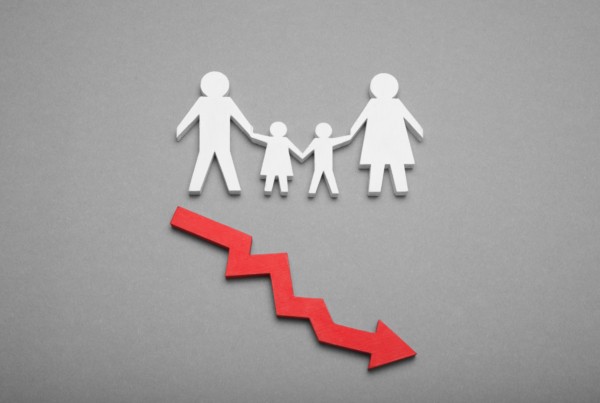I’m a millennial. I plan, I research and I expect everything will go according to my overall objectives. I track my ovulation cycle, he tested his sperm – we are OK. So, why are we not pregnant yet?
Trying to conceive without results for a year or losing a pregnancy (more than once) places you into a group of 12% of the population ‘classified’ as infertile. Just this word creates anxiety, separates you from your friends who have kids and causes you to ask the question, ‘Can we ever have children?”
We asked Dr. Kenan Omurtag, Reproductive Endocrinologist about what to expect when seeking medical advice for infertility…
“Couples who enter my IVF clinic fear the unknown, are anxious about seeing a fertility specialist and are understandably nervous about the prospect of invasive, expensive procedures that do not come with any guarantees.
The goal of a reproductive endocrinologist is to work together with an infertile couple to have a baby. To achieve this goal requires VARIED treatment based on the individual problems and needs of the couple. As fertility specialists we are very well versed in the medical, emotional, physical and financial variables that drive our patients and our goal is to advise them how to achieve a pregnancy in the most efficient and sensitive way possible.
Initial concerns and guidelines
Here are some guidelines for when to seek help from an OB/GYN or fertility specialist.
If you are not pregnant and have been:
- Having unprotected intercourse for 12 months and the woman is less than 35 years of age or
- Trying to conceive for 6 months and the woman is more than 35 years old
Other reasons are:
- If the woman has irregular periods or concerns about whether her tubes are ‘open’ and/or
- You wonder if his sperm is OK
Who does the initial fertility evaluation?
- OB/GYN: It is common in the U.S. to start the initial fertility assessment (and sometimes begin treatment) under your OB/GYN’s guidance.
- FERTILITY CLINIC/SPECIALIST: Other couples prefer to go straight to a fertility clinic.
- BOTH: Many times, the OB/GYN will start the initial work-up and then refer you to a fertility clinic.
Finding a good fertility specialist
- Ask your OB/GYN for a list of recommended Fertility Specialists
- Ask friends who have been through infertility testing
- Read online reviews about the practice/clinic and doctors
- Make a list of the critical things that are important to you to ‘optimize the fit’ between you and the fertility specialist and the practice
- Certification and experience of the practice physicians (see below)
- University / Hospital affiliations
- Length of time the facility has been open
- Cost
- Success rates (caution: see below)
- Overall ease with the practice – professional, emotional, logistical
- Wait times
- Understanding and experience with your issues
Certification and Success Rates
- Board Certified (Reproductive Endocrinology and Infertility) – American Board of OBGYN (ABOG) – A physician with this title has studied an additional 3 years after his MD, specializing in fertility treatment and practice
- SART reporting: the Society of Assistant Reproductive Technologies (SART). By law, ALL fertility clinics in the US have to report success rates to the government (CDC). SART member clinics subscribe to the highest standard of care. Approximately 90% of US fertility practices are SART members.
- Success Rates: Exercise caution when comparing the success rates of various clinics. In recent years, SART has been investigating ‘creative’ success rates reported by some clinics. A clinic may claim very high success rates on their website, however this level of success may pertain only to certain patients with less complex fertility issues/challenges than yours. Confirm that reported success rates are reflective of your test results, age and medical history.
Fertility Specialist Visit and Treatment Plan
- Bring any/all fertility testing results/medical records, etc. to help determine what additional testing/treatment might be required.
- The visit will take 30-60 minutes
- Go as a couple
- Office support/interaction: It should be made clear which people in the office are resource(s) for you and will be assisting with your care and questions
Expect to leave with two plans:
- Short Term Plan: If you come to the Fertility Specialist with your full work-up completed (blood work, ultrasound, hysterosalpingogram to evaluate your tubes, semen analysis) oftentimes the short term plan can be initiated right away. This plan may involve a treatment with Clomid (to increase/stimulate ovulation) and IUI for three cycles. If you have not had any work-up, this will begin immediately – this may delay the short term treatment plan up to 1 month until the test results are available.
- Longer Term Plan: If the Short Term Plan is not effective, another consultation will take place and discussions will begin about initiating other treatments including IVF.
Communication during the treatment phase
Typically, after your initial visit another consultation will be scheduled after your short term plan has been tried. During this 3-4 months of treatment, any concerns or questions you have should be addressed by your designated office contact. Most physicians will have a nurse coordinator and an assistant who you will get to know very well through regular communication. Some clinics even have electronic access to a portal system which allows regular, secure electronic communication with the office.
Fertility clinic visits can be intimidating. Select the right one for you. Do not be afraid to leave a clinic and seek out a change of scenery if your experience is not what you think it should be. Ultimately, you will make the right choice and hopefully it will result in reaching your goal.”







